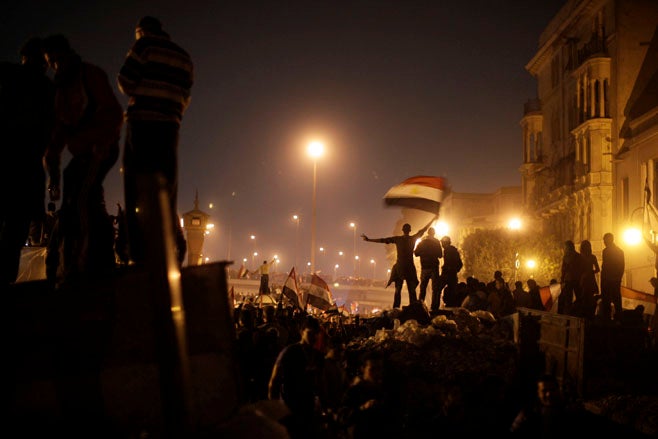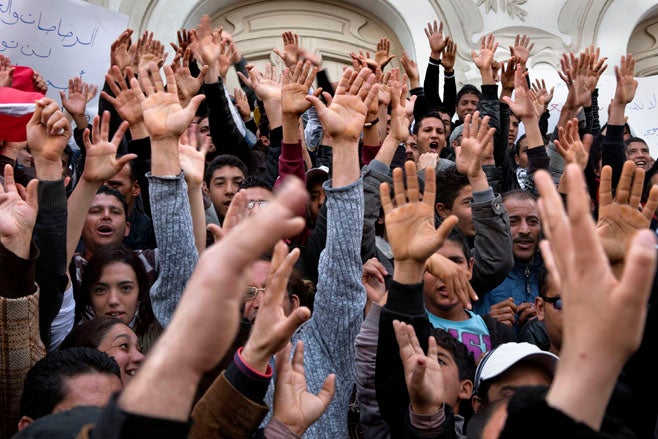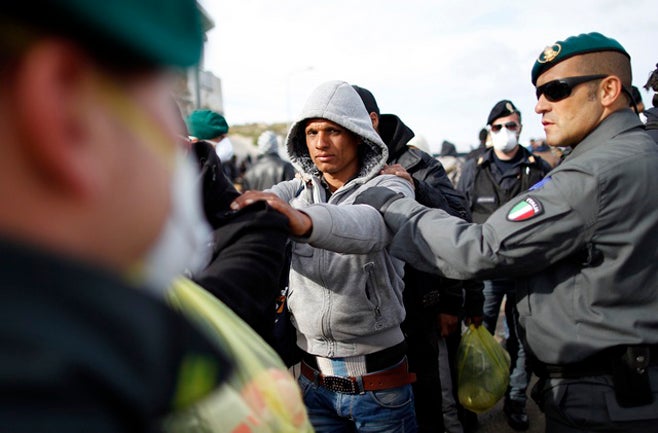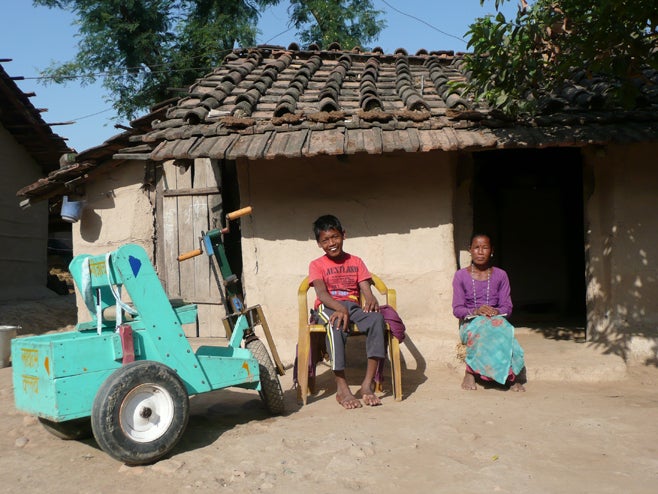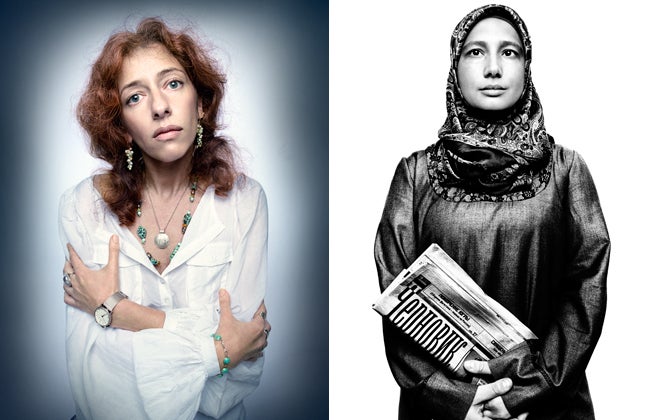Progress continued in Rwanda in 2011 in the fields of development, delivery of public services, health, and the economy. Draft revisions of the laws on genocide ideology and media contained some positive amendments, but leave open the possibility for inappropriate prosecutions for “genocide ideology.” Moreover, freedom of expression and political space are still severely restricted. Members of opposition parties, journalists, and other perceived critics of the government were arrested, detained, and tried, some solely for expressing their views. Charges such as endangering state security and inciting public disobedience were increasingly used to prosecute government critics.
Community-based gacaca courts had almost completed their work by the end of the year, after trying more than 1.2 million cases related to the 1994 genocide since 2005. A number of applications for review of gacaca decisions remained pending.
The International Criminal Tribunal for Rwanda (ICTR) ruled that the case of Jean-Bosco Uwinkindi should be transferred to Rwanda’s national courts.
Government Opponents and Other Critics
Bernard Ntaganda, leader of the PS-Imberakuri opposition party, was tried and sentenced to four years imprisonment in February 2011. He was found guilty of endangering national security, divisionism, and attempting to organize demonstrations without authorization.
The trial of Victoire Ingabire, leader of the FDU-Inkingi opposition party, began in earnest in September after multiple adjournments. Ingabire faces six charges: creating an armed group, complicity in terrorist acts, complicity in endangering the state through terrorism and armed violence, inciting the public to rise up against the state, genocide ideology, and divisionism. She was being tried alongside four current or former members of the Democratic Forces for the Liberation of Rwanda (FDLR), an armed group operating in the Democratic Republic of Congo, composed partly of individuals who participated in the Rwandan genocide. All four have incriminated Ingabire. The trial was ongoing at this writing.
Other FDU-Inkingi and PS-Imberakuri members were harassed and intimidated. FDU-Inkingi representatives Anastase Hagabimana and Norbert Manirafasha were arrested on April 20 in connection with a draft statement by their party criticizing the increase in the cost of living in Rwanda. Manirafasha was released on May 3 without charges. Hagabimana was held in pre-trial detention until August 26, when he was provisionally released. He was tried on charges of endangering state security. At this writing the judgment was expected in November.
There was no progress in the case of the July 2010 murder of André Kagwa Rwisereka, vice-president of the opposition Democratic Green Party of Rwanda. No one has been charged with his murder.
Four former senior government and army officials turned outspoken critics, now in exile—Faustin Kayumba Nyamwasa, Patrick Karegeya, Gerald Gahima, and Théogène Rudasingwa—were tried in absentia by a military court in January. The trial focused on the defendants’ public criticisms of the government and President Paul Kagame. They were found guilty of endangering state security, destabilizing public order, divisionism, defamation, and forming a criminal enterprise. Karegeya and Gahima were each sentenced to 20 years imprisonment and Nyamwasa and Rudasingwa to 24 years, with an additional charge of army desertion. The trial of six people accused of involvement in a failed assassination attempt on Nyamwasa in 2010 opened in South Africa in June and hearings continued through October. At this writing the trial had not yet concluded.
Nyamwasa’s brother, Lt.-Col. Rugigana Ngabo, held incommunicado since his arrest in August 2010, appeared before a military court in January, charged with endangering state security. Details of his alleged offenses were not disclosed in the initial hearings. At the military prosecutor’s request, subsequent hearings were held behind closed doors.
Less prominent individuals were also punished for criticizing state policies. Abbé Emile Nsengiyumva, a priest in eastern Rwanda, was arrested following a Christmas sermon in December 2010 in which he had opposed a state policy to destroy thatched houses and proposals for family planning restrictions. He was accused of endangering state security and inciting civil disobedience. In July he was sentenced to 18 months imprisonment.
The law on genocide ideology, which has been used to target critics, went through a process of revision. If adopted, some draft amendments would help limit the scope for misuse of the law by defining the offense more precisely and requiring that intent behind the crime be proven. However, vague offenses such as approving of the genocide by “mocking” a person or group on the basis of shared characteristics are included in the draft and are ripe for abuse. The new draft law proposes a reduction in penalties.
Independent Media
The government made draft amendments to media laws, which, if adopted, would lift some of the burdensome restrictions on journalists and introduce self-regulation by media. However, after years of intimidation and a further crackdown on independent media in 2010, there are almost no independent Rwandan journalists operating in Rwanda. Several leading independent journalists remain in exile.
In February Agnès Nkusi Uwimana and Saidati Mukakibibi, of the newspaper Umurabyo, were tried and sentenced to 17 years and 7 years, respectively, for publishing articles critical of the government and President Kagame. The court ruled that the two women had incited the public to rise up against the state and found them both guilty of endangering public order. Uwimana, the newspaper’s editor, was also found guilty of minimizing the genocide, divisionism, and defamation.
In September the Supreme Court heard the appeal of Didace Nduguyangu and Antoine Karemera, convicted of the murder of Umuvugizi journalist Jean-Léonard Rugambage in 2010. The case rested on the theory that they had killed Rugambage to avenge the death of a relative, whom Rugambage had allegedly killed during the genocide. Both men were sentenced to life imprisonment in 2010. On appeal, Nduguyangu’s sentence was reduced to 10 years and Karemera was acquitted. Judicial authorities are not known to have pursued leads suggesting that Rugambage may have been killed because of his investigative work as a journalist.
Human Rights Defenders
The government’s intolerance of criticism and hostility toward human rights organizations means there is little scope for Rwandan organizations to report on human rights violations by the state. Threats and intimidation of human rights defenders by individuals close to the government, combined with a degree of self-censorship, have ensured that few Rwandan civil society groups publicly criticize the government’s human rights record.
In August Joseph Sanane and Epimack Kwokwo, the president and acting executive secretary of the Regional Human Rights League in the Great Lakes Region (LDGL)—one of the few remaining active human rights organizations in Rwanda—were prevented from travelling to Burundi and were detained by the police. They were questioned about the LDGL’s internal administration and finances, and accused of helping its former secretary general leave the country. Kwokwo was released the same day; Sanane was detained overnight. Neither was charged with any criminal offense.
Senior government officials and pro-government media continued to discredit international human rights organizations in public speeches, articles, and interviews. Pro-government media and websites also launched personal attacks against human rights defenders, academics, and other individuals for painting a negative picture of the human rights situation in Rwanda.
Justice for the Genocide
Community-based gacaca courts, which have tried more than 1.2 million genocide-related cases since 2005, had almost completed their work by the end of 2011. They leave behind a mixed legacy, with a number of positive achievements—including the swift work of the courts, the extensive participation of the local population, and the revelation of information about events during 1994—alongside violations of the right to a fair trial, intimidation of witnesses, corruption of judges and other parties, and political interference. As gacaca prepares to close, the government is considering how to handle applications for reviewing gacaca courts’ decisions.
In June the referral chamber of the ICTR ruled that the case of Jean-Bosco Uwinkindi should be transferred to Rwanda’s national jurisdictions. In the past the ICTR and jurisdictions in other countries had declined to transfer genocide cases to Rwanda due to fair trial concerns. Uwinkindi’s appeal against the decision was pending at this writing. In October the European Court of Human Rights held that the extradition of Sylvère Ahorugeze from Sweden to Rwanda would not expose himto a real risk of a flagrant denial of justice, and so would not violate the European Convention on Human Rights.Ahorugeze was arrested in Sweden in 2008 following an extradition request by Rwanda.
Trials Linked to 2010 Grenade Attacks
Twenty-nine people were tried in connection with a series of grenade attacks in Rwanda in 2010 and previous years. Most of the defendants plead guilty. Several stated in court that they had been illegally detained in military detention for several months and tortured. The trial, which began in February, was ongoing at this writing.
In a separate case, university professor Lambert Havugintwari was arrested in Huye on February 9 and held illegally in military custody in an undisclosed location for several weeks. He and his co-accused, Alexandre Munyentwali, were accused of bringing grenades into the country and charged with endangering state security and forming a criminal gang. They were tried in November and were awaiting the court’s verdict at this writing.
Cases Related to the Democratic Republic of Congo
There was no progress on the case of Laurent Nkunda, former leader of the Congolese armed group National Congress for the Defense of the People (CNDP), who remained illegally detained under house arrest in Kigali, the capital, since January 2009, with no access to lawyers and occasional access to relatives. Continued attempts to get his case heard in Rwandan courts remained blocked.
Rwandan authorities are not known to have taken any action in response to allegations of grave crimes committed by the Rwandan army in Congo in 1996 and 1997, contained in the 2010 mapping report of the United Nations Office of the High Commissioner for Human Rights.
Refugee Protection
Rwanda placed considerable pressure on states hosting Rwandan refugees and on the office of the UN High Commissioner for Refugees (UNHCR) to invoke the 1951 UN Refugee Convention’s “cessation clause” by December 31, 2011, under which host countries can declare that a given group of refugees no longer needs protection and should return home. The Zambian government and UNHCR announced steps to prepare cessation on September 5. In a joint communique with the Rwandan government on October 7, UNHCR recommended that states invoke cessation by December 31, 2011, effective from June 30, 2012. International NGOs voiced concern about human rights violations in Rwanda, as well as fears that countries hosting large numbers of Rwandan refugees may not have adequate procedures to process claims for exemption under the clause.
Key International Actors
Most foreign governments continued to broadly support the Rwandan government and to applaud its development successes. However, some governments expressed increasing concern about restrictions on free speech and political space following the 2010 elections. A warning by the London Metropolitan Police about security threats against two Rwandans living in the United Kingdom in May affected Western perceptions of the government’s human rights record, particularly in the UK, one of Rwanda’s most important partners. However, these developments did not fundamentally alter the foreign and development policies of most Western governments.
Following the resumption of diplomatic relations between Rwanda and France and French President Nicolas Sarkozy’s visit to Kigali in 2010, President Kagame visited Paris for the first time in September 2011.
